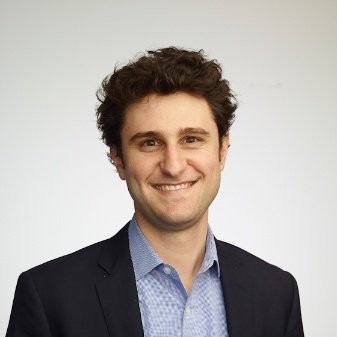Apr 16
2021
Future-Proofing The Healthcare Experience
By Arel Lidow, co-founder and president, Cedar.

At a recent doctor’s appointment, I found myself in an uncomfortable situation, one that will probably seem familiar to you.
Before my appointment, I filled out a bunch of paperwork online—but when I arrived, there were still more forms to complete. Although the check-in process is typically annoying at best, this extra hassle during a pandemic made things even worse.
The care I received was great. But the administrative experience—which included using a communal pen and clipboard, and standing in the waiting room to keep my distance from others—was clunky and stressful. On the way home, I found myself searching online for a new (and more modern) provider.
It’s been said that your best experience anywhere inevitably becomes your baseline expectation everywhere. Didn’t Amazon change how you shop online forever? Likewise, healthcare has had to adapt and deliver consumer-friendly experiences that mimic those in patients’ daily lives.
The need for transformation in digital health has only been accelerated by COVID-19, with people seeking virtual care to avoid exposure, or even delaying care and cancelling appointments—which can increase morbidity rates for chronic and acute health conditions.
If consumers can order grocery deliveries with the touch of a button, why can’t it be as simple and convenient for patients to engage with healthcare providers at a time and place that’s most convenient for them? Why can’t we deliver a patient-centric experience by meeting them where they are?
Leading retail companies have set the bar so high that exceptional end-to-end digital experiences are now just table stakes. Patients are consumers, after all, and consumers increasingly expect an end-to-end journey that’s cohesive, seamless, and safe. They deserve a connected experience that better meets their needs. So, how can providers exceed patient expectations in the new normal and beyond?
Ever-Changing Expectations
According to Cedar’s second-annual Healthcare Consumer Experience Study, conducted by Forrester Consulting, the future of healthcare must be transparent, touchless, and personalized. It’s that simple. Sixty-eight percent of study respondents emphasized the importance of having a customized experience with their healthcare provider—how they communicate, pay, and so on—not unlike how Chipotle remembers that you like extra guacamole with your burrito bowl when you order through its app.
In fact, nearly half the respondents wished that the digital healthcare experience was smoother and more intuitive, similar to experiences with Amazon, Netflix, or Uber. Companies offering best-in-class digital experiences have become the yardstick against which all other companies are measured—and healthcare is no exception.
Imagine if connecting with your provider was as easy as queuing up your next binge-watching session: an app could navigate you through scheduling an appointment, completing check-in forms, and pre-paying your copay, all within minutes. Imagine having an outstanding patient experience before you even walk into a doctor’s office.